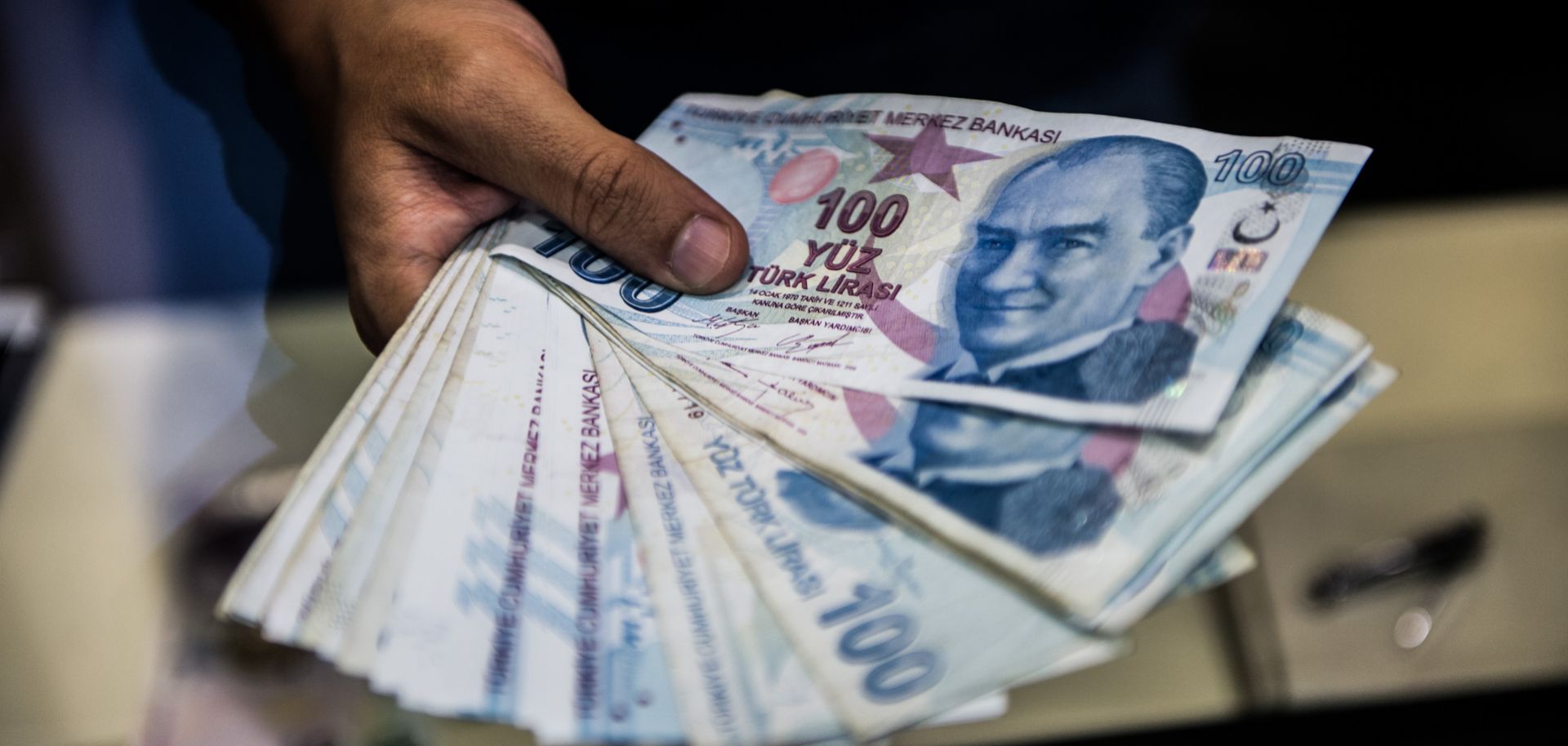COLUMNS
Making Sense of Turkey's Economic Crisis

Aug 16, 2018 | 09:00 GMT

A teller holds Turkish lira banknotes at a currency exchange office in Istanbul on Aug. 13, 2018. Turkey's troubled lira tumbled on August 13 to fresh record lows against the euro and dollar, piling pressure on stock markets on fears the country's crisis could spill over into the world economy. (Photo by Yasin AKGUL / AFP)
(YASIN AKGUL/AFP/Getty Images)
Highlights
- Even as Turkey's economy bleeds capital in the midst of crisis, President Recep Tayyip Erdogan resists breaking from the outdated pro-growth economic model that built his political dynasty.
- The president's framing of the economic crisis as a foreign plot to weaken the state is proving effective in building nationalist fervor, giving him the option to move up municipal elections to November and hold off on economic tightening in the interim.
- Geopolitical friction with the United States is bound to grow in the coming months, especially as Turkey comes under sharp scrutiny for violating Iran sanctions.
- As Turkey balances among the great powers, Ankara will likely look for financial assistance from sources other than the International Monetary Fund, including China, Qatar and Kuwait.
Subscribe Now
SubscribeAlready have an account?
